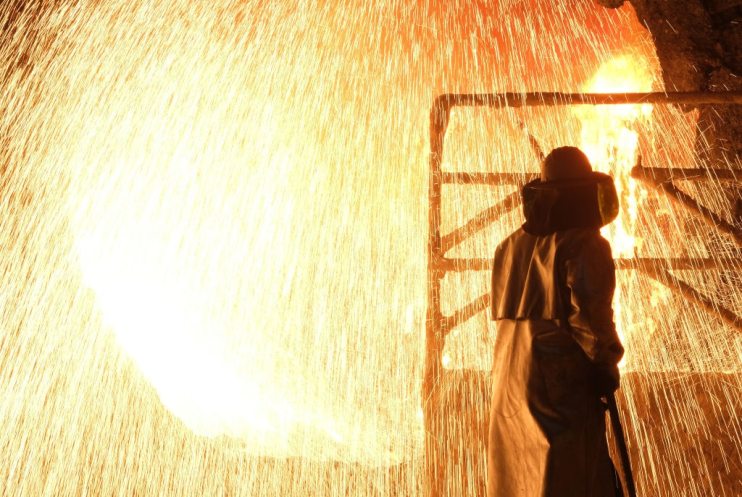Electrifying steel production and investing in scrap could slash industry emissions, reveals think tank

One of the UK’s leading environmental think tanks has urged the government to move away from coal imports to meet the country’s production needs, and instead boost the development of new electric furnaces.
In its latest report, ‘Building the future: a faster route to clean steel’, Green Alliance argues that shifting from blast furnaces to electric arc furnaces in the UK and investing in scrap could slash steel industry emissions by 87 percent by 2035.
Green Alliance predicts the move would more than double domestic scrap use by 2035, making more of existing resources and cutting the UK’s dependence on coking coal by 98 percent.
A new generation of hydrogen supplied furnaces could then cover any remaining needs for virgin steel in time for the phase out of traditional blast furnaces over the next decade and a half.
Steel is a key component in the production of green infrastructure, such as electric vehicles and turbines, yet its current production process is carbon intensive.
It is currently responsible for 15 percent of the UK’s industrial emissions.
Electric arc furnaces have a low carbon footprint and allow for the recycling of domestic scrap – potentially reducing the need to import iron ore and coking coal.
In the future they could also be coupled with plants that use hydrogen to create virgin steel.
Low carbon electric arc furnaces are already used by some UK steelmakers to recycle scrap steel, but currently produce lower volumes than traditional, higher carbon blast furnaces.
As it stands, the UK exports around 90 percent of all scrap produced, most of it poorly sorted and consequently of low value.
Beyond bringing down emissions, Green Alliance believes approach would make the economy less vulnerable to global supply chain shocks, reduce reliance on coking coal producers such as Russia, and protect jobs in the UK’s steel heartlands.
The report has been published following the Government’s decision to delay making a verdict on opening a new coal mine in Cumbria – the first of its kind in 30 years.
The mine would coking coal which would be used for the manufacturing of steel – an industry the Government remains keen to protect on national security grounds.
Renewables could help ease high energy prices
A significant barrier to the industry’s electrification is high energy prices – and the report recommends setting aside a small portion of new renewable energy through a ‘green power pool’ for industries like steel that would use the power to reduce production emissions.
To incentivise better domestic processing of scrap, Green Alliance also suggests a new set of minimum quality standards for exported scrap, driving up domestic demand, and ending VAT on its domestic sale.
It predicts these policies, which would support the creation of electric furnaces and eventually hydrogen production, would set strong foundations for green steel and could pave the way for capital investment worth around £1.3bn.
Roz Bulleid, deputy policy director at Green Alliance, said: “Investing in electric furnaces will not only slash industry emissions but enable us to carry on producing crucial materials from our industrial heartlands. To give industry the foundations for greener investment, the government should make some basic VAT changes and offer access to a small amount of cheap renewable energy. This would keep valuable resources at home, protect jobs and turn a polluting industry into one that leads the charge to net zero.”
The latest report from Green Alliance is hugely timely, with the Government currently weighing up whether to open the country’s first deep new coal mine in 30 years, while also considering further tariffs on steel imports from overseas.
The coal mine, which would be based in Cumbria, is for coking production required for steel manufacturing.